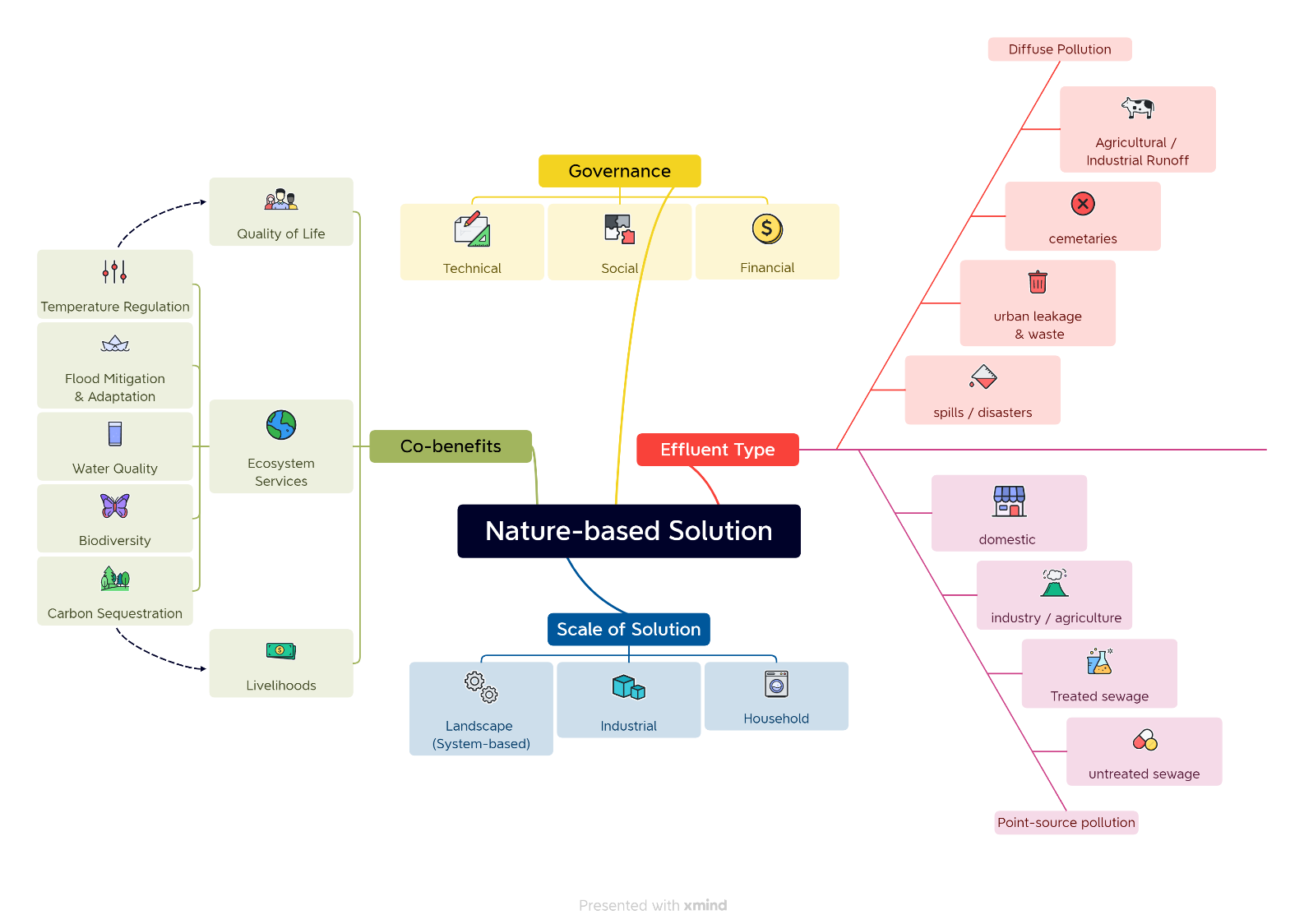Nature-based Solutions: Black and Marmara Sea
The Black Sea is Europe's most polluted sea, requiring diverse solutions to improve its water quality. The Nature-based Solutions (NbS) approach is a promising strategy with many co-benefits. This report highlights the effective use of NbS to tackle water pollution in the Black Sea Region. NbS has gained global attention, showing significant potential for implementation and impact. Organizations like The World Bank, IUCN, Global Center for Adaptation, The Nature Conservancy, International Water Association, and Ecoshape are actively involved in NbS initiatives.
The project covers the Black Sea, its rivers, and their catchments, including Romania, Bulgaria, Moldova, Türkiye, Georgia, and parts of Ukraine. The Black Sea faces environmental challenges such as declining biological resources, reduced species diversity, and degraded landscapes due to human activities like pollution, eutrophication, and unsustainable fishing. Limited water exchange and pollutant runoff from European rivers worsen plastic pollution. The Black Sea's unique features, such as its largest meromictic basin and anoxic lower layer, add to its challenges.
Comprehensive stakeholder engagement has been pursued through workshops and analyses, focusing on littoral countries. The involvement of key players, regional organizations, expert communities, and international financial institutions ensures informed decision-making and cooperation. This inclusive approach supports the successful implementation of NbS, aligning with economic development and environmental preservation goals.
Pollution in the Black Sea is influenced by various factors, including significant anthropogenic pressures, eutrophication, and bilge oil dumping. Pollution enters through river systems, and human activities often exacerbate this by disrupting river dynamics. Traditional engineering solutions can create new challenges, such as alterations to the Danube floodplain. NbS offer a holistic strategy to maintain water body integrity by targeting pollution sources upstream and restoring natural systems.
Nature-based solutions in river, coastal, and open sea contexts can counter various forms of pollution and ecological challenges. Constructed wetlands treat wastewater, prevent contamination, and focus on nutrient removal. Managing sediment addresses floods, erosion, and habitat protection. NbS involve beach preservation, dune reinforcement, and habitat improvement. Harmful algal blooms pose risks, and algae harvesting for renewable energy and food production, along with reintroducing key species, aim to restore depleted European seas.
Addressing climate change demands more investment in NbS, which currently receive only 3% of global climate funds. Annual allocations for NbS projects are about $133 billion, mostly from public financing. Private sector involvement is limited due to cost uncertainty and lack of standardized revenue models. Philanthropies, donors, and Development Finance Institutions are key in mobilizing funding, along with blended finance approaches. Measuring impact and cost-benefit analysis are crucial for private engagement and sustainability.
A governance framework for NbS in the Black Sea Region should emphasize integrated wastewater management, involving state agencies, non-state actors, and communities. Challenges include harmonizing policies influenced by EU directives, limited technical capabilities, and conflicting roles in enforcing environmental regulations. While green infrastructure and NbS align with global and EU frameworks, integration into national strategies varies. Moldova showcases NbS integration in policies emphasizing water use, biodiversity, and wetland restoration. Addressing land-based sources of pollution, responsible for over 80% of marine pollution, requires transboundary cooperation to protect the Black Sea's ecological integrity.
The project culminates in a series of recommendations for propelling NbS development, encompassing aspects like cost-effectiveness, stakeholder engagement, analytical science, circular economy integration, blended finance, localized solutions, and digital innovation. This comprehensive exploration underscores the potential of NbS as a transformative force in enhancing water quality and environmental resilience within the Black Sea Region and beyond.

CONTACT US
Lotte Braat
Email: lotte.braat@rhdhv.com